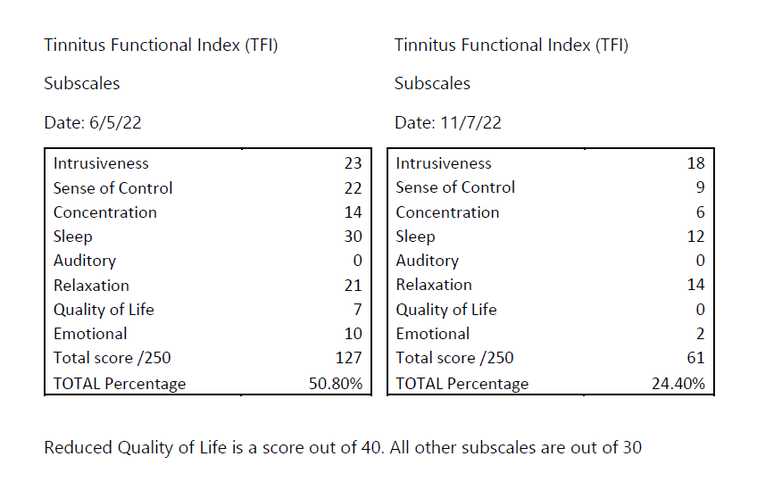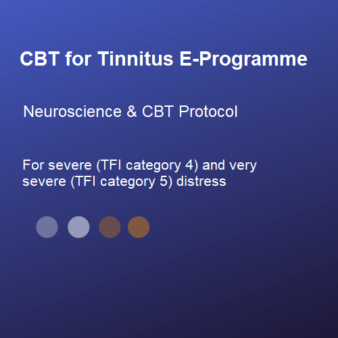Anxiety uses Avoidance as a Strategy
Published by Debbie Featherstone in It's more than tinnitus · Thursday 28 Jul 2022
Around a quarter of people who complete and send in their TFI (Tinnitus Functional Index) don’t follow through to enrol and benefit from the CBT for Tinnitus E-Programme. Most of them have a TFI at category 4 (tinnitus is a big problem) and around 25% of them have a category 5 TFI (tinnitus is a very big problem).
For me as a Hearing Therapist, this is saddening and also frustrating because were they to use the E-Programme, they would be feeling so much better within just a few weeks (see reviews). Even the shorter free self-directed programme is hardly used, so I can only assume it isn't because of cost - which is as low as I can reasonably make it due to there being on average 4-6 hours of my professional time for each person using the therapist-supported course. So why don’t some 25% of people follow through and enrol?
According to NICABM: "For people who struggle with anxiety, it can be a frightening, isolating experience - so it's natural that many simply try to avoid it. The problem is, the more we try to avoid anxiety, the more powerful it becomes (*NICABM, 2022)
In fact, not only NICABM but across the field of psychology, it is a well-established fact that avoidance is probably the most common strategy used by people with anxiety. When we are anxious, we use emotional reasoning (a common cognitive distortion) and predicting the future (another cognitive distortion) to reason that “it won’t work for me”, or “my tinnitus is too bad to be helped - nothing can help”, or a host of other avoidance tactics. Sadly, the result of avoidance is maintenance of the anxious state, and of course, the physiological link between tinnitus distress and anxiety ensures the problems persist.
Too many patients over my 30 year career as a Hearing Therapist who had kept putting off doing something to help themselves with tinnitus distress but eventually did, have said to me later "I wish I'd come to you sooner!" And so do I!
Is it the cost?
If, for you, it IS the cost that is stopping you from enrolling, at least use the free self-directed course. Use the breath work, use the relaxation, use the logs and progress checks; use the interactive tools that are in there. These are what help. They are not difficult and the benefits are huge. I don't benefit from anyone using the free course, but people that use it do.
This is recent feedback from Helen, UK who used and completed the free self-directed course, including her Tinnitus Functional Index (TFI) changes:

Helen's review: "I was very sceptical, at first, that the course would make any real difference but it absolutely has. Although I still have times when I am very aware of the tinnitus, I find that for much of the time I am no longer frustrated or angry regarding it and that makes it easier to just get on and do the things that I need to do and not to allow it to always be in the foreground. Very impressed."
Do you recommend others to use the CBT for Tinnitus E-Programme? "Yes, I do and have been very impressed (and appreciative) of the improvements experienced."
You can do what Helen did - even with the free self-directed course.
If it is not the cost
If the decision not to enrol isn't cost-related: currently £225 with TWO 1-1 appointments (60-90 minutes each), email support, feedback from logs and interactive tools amounting to on average 4-6 hours of therapist time, I would urge anyone with a TFI 4 or 5 to enrol: CBT for Tinnitus with two 1-1 appointments
Please help yourself. Start by sending your current TFI
*NICABM (National Institute of Cognitive & Behavioral Medicine)
Debbie Featherstone MSc
Hearing Therapist & Psychotherapist
CBT for Tinnitus E-Programme
0
reviews


